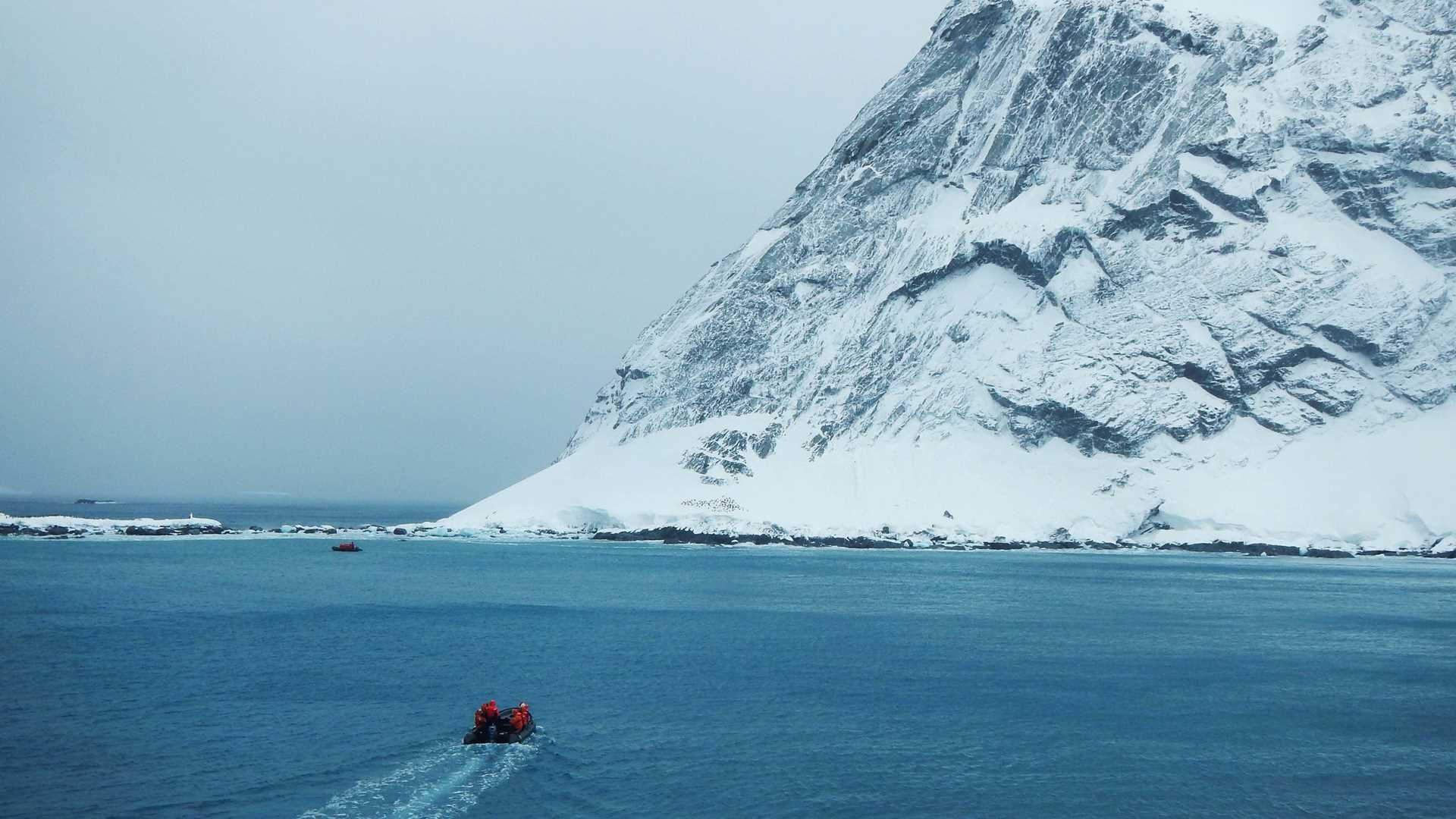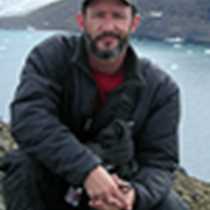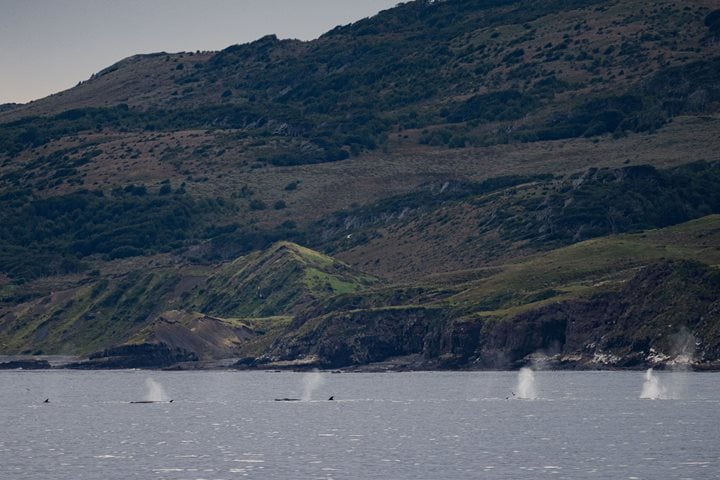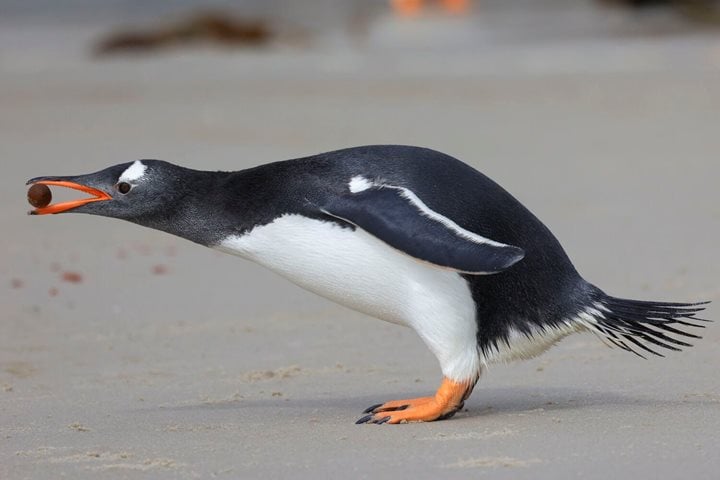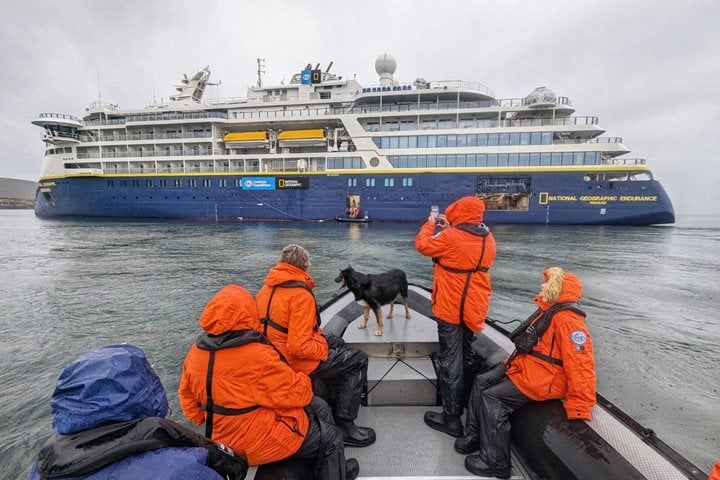Our voyage continued towards the Antarctic Peninsula today, but first a stop of incredible, historic polar value. The morning was challenging as we felt the ability of the Southern Ocean to remind us of the powers involved when wind meets the sea. National Geographic Explorer was worthy to the task as she plied her way towards Elephant Island. It was here that Ernest Shackleton and his men made landfall for the first time in 500 days—after leaving South Georgia, becoming beset in the sea ice of the Weddell Sea; after the Endurance sank in front of them, after making two separate camps on the ice, after the ice broke up and they rowed and rowed and rowed. On arrival, they made camp at a point that Frank Wild, Shackleton’s right-hand man, found while scouting the island. They brought their three boats ashore on a small beach supplied with rocks from the glacier behind them. They rested, increased their larder and made camp while Shackleton conceived a plan so bold and unprecedented that it was only a few years ago that it was repeated in a similar fashion. He would take five men and sail for South Georgia, across the most violent sea in the world, in winter.
We paid homage to the plight of the 22 men left behind to overwinter on a stretch of land no larger than a modern home. Living in their overturned rescue boats which did just that, recue and save their lives whether in the water or overturned on land. They might as well have been on the moon for there was no communication possible with anyone if Shackleton had failed in his boat journey. We could view the campsite from the ship. The intrepid amongst us took to the Zodiacs, barely smaller than their own boats of the time, and rode closer to the now smaller beach. There, cemented to the rocks, is a bust of Piloto Pardo, the captain of the Yelcho, the ship that Ernest Shackleton was finally able to get down to save the men of Elephant Island.
Having been to South Georgia and then crossed the seas between the two islands, we had a real sense of the obstacles that faced both groups of men. From here we’ll continue on farther south to the Antarctic Peninsula.

